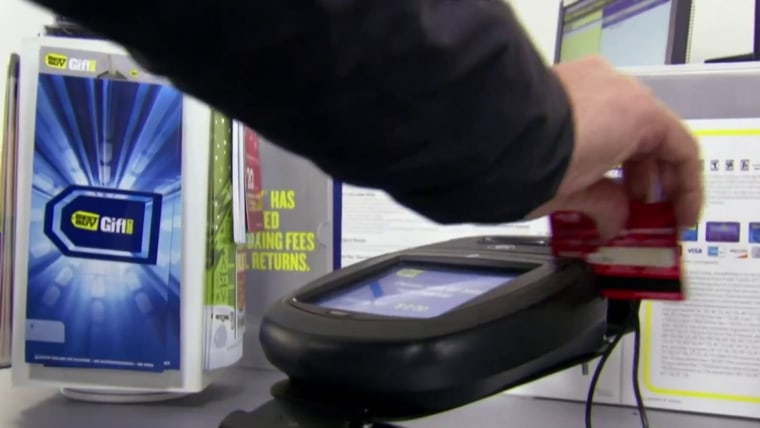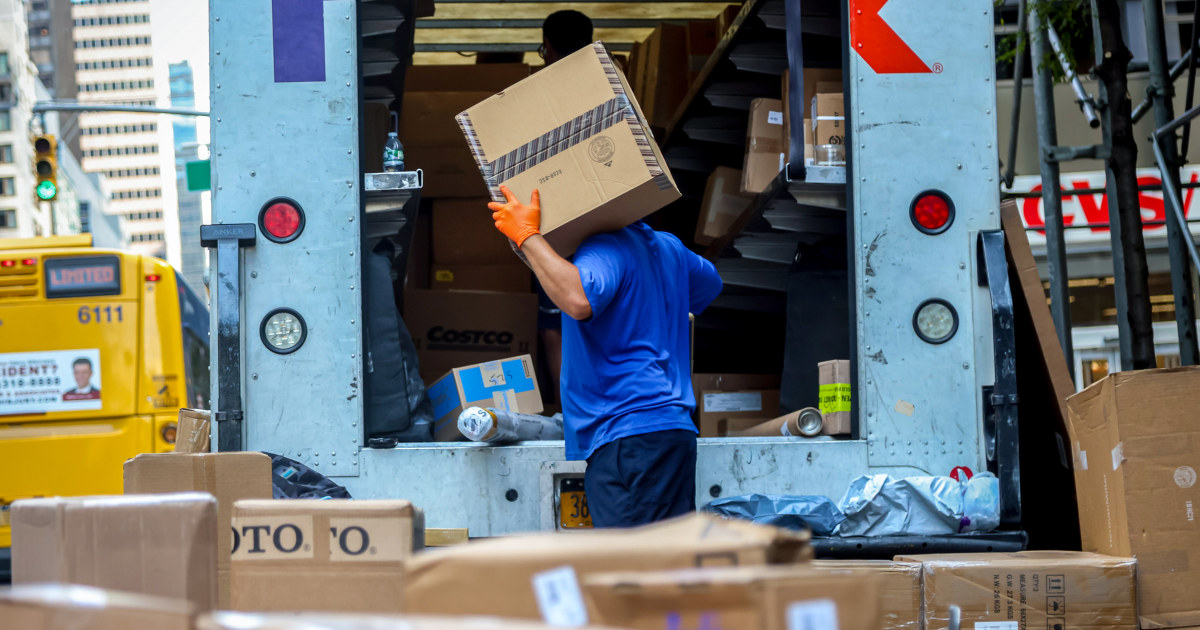President Donald Trump’s move to place big tariffs on small-dollar items ordered from abroad has caused headaches for some U.S. shoppers, not to mention the overseas merchants selling to them.
But the change also has defenders who say it is needed to create a more level playing field for domestic industries. The adjustment has also sparked a gold rush for other U.S. companies designed to handle customs processing and product fulfillment.
Starting Aug. 29, Trump ended the exemption on duties for goods worth less than $800 — also known as de minimis items — making them newly subject to sizable tariffs. The exemption had opened the door in recent years to a wave of ultra-low-cost goods from foreign companies like Temu and Shein sold directly to U.S. consumers duty- and inspection-free.
“It seems very odd that we would let foreign-owned companies sell directly to American consumers without any limitations,” said Craig Fuller, founder and CEO of FreightWaves, a shipping industry consultancy. “It put our retailers on the back pedal.”
The de minimis exemption was first established in 1930 for goods worth $1 or less to ease processing burdens on U.S. customs officials. In 2016, Congress increased the de minimis limit to $800 in response to the growing e-commerce boom.
By 2024, as many as half of all packages with de minimis exemptions were coming from China, prompting U.S. elected officials, including President Joe Biden, to propose new limits on de minimis, though none were enacted before Biden left office.
Trump ended the exemption for low-cost goods from China in May. But Fuller said that without eliminating de minimis for the rest of the world, “we were never going to get control.”
“China is incredibly efficient at trying to bypass the U.S. system,” he said.
The latest change caused many countries to suspend some shipments into the United States while leaving some U.S. customers facing surprise tariff bills. Firms large and small that relied on e-commerce and drop-shipping strategies using foreign manufacturing have also been affected. Lululemon shares plunged this month after it reported its existing e-commerce strategy for many U.S. shipments was no longer viable because of the exemption’s closure.

But whatever impact closing the exemption may be having on U.S. shoppers must be weighed against the potential benefits, said Kim Glas, CEO of the National Council of Textile Organizations, the chief lobbying firm for the U.S. textile industry,
From 2019 to 2024, the U.S. textile industry’s total employment fell by more than 18% amid the rise in overseas e-commerce businesses that were taking advantage of de minimis.
The explosion of de minimis shipping over the past decade did “severe harm” to U.S.-based clothing manufacturers and retailers, Glas said. Products shipped via de minimis have been more likely to be unsafe, as well as produced using forced labor or child labor, she said.
Officials from both the Biden and Trump administrations have also said the de minimis loophole has been used to facilitate the trade in illicit drugs, especially fentanyl and its precursor chemicals, which can be shipped in small quantities.
“What is the true cost of not having domestic manufacturing to the tax base — and the cost of losing a human life?” Glas said. “I think the Trump administration should be praised for closing this dangerous loophole.”
While U.S. production is expected to benefit from the change over time, the new rules have proven an immediate boon to the dozen or so businesses that U.S. Customs and Border Protection has designated as official “qualified parties” that can collect and process tariffs on behalf of the U.S. government.
Among the biggest beneficiaries has been Zonos, a Utah-based company founded in 2009. It has won contracts from the governments of Australia, Canada and the United Kingdom to come up with solutions to comply with the new requirements. More are on the way, founder and CEO Clint Reid said.
He told NBC News that growth has been “nuts” for the company since Trump announced the rule in July. Pre-existing relationships with governments had helped Zonos land the latest contracts.
In the case of Canada, he said, “they had us fly up to Ottawa, and there were 25 people in the room from Canada Post,” Reid said, referring to the country’s postal service. “They gave us 21 days.”
The Zonos team, which employs about 100 workers around the globe, “worked all day every day, including weekends, to make this happen in three weeks,” he said.
The new rules have also supercharged inbound inquiries for New York-based customs processor BoxC Logistics, CEO Chad Schoefield said.
“It’s been good for us, quite honestly,” he said. “A lot of posts around the world have reached out, and we’ve been getting them set up.”
U.S.-based warehousing groups are also seeing growth, especially ones operating “free trade zones,” where duties aren’t paid until goods are shipped to U.S. customers.
“Before, a company might have had the product manufactured in Vietnam or China and had it shipped directly to me in New York City,” said Maggie Barnett, CEO of LVK Logistics, a shipping firm. “Now they’re going to bring it in via sea on a container ship and move it to a warehouse in Pennsylvania, and that warehouse will collect storage fees and then pick and pack and ship to the U.S. consumer.”
